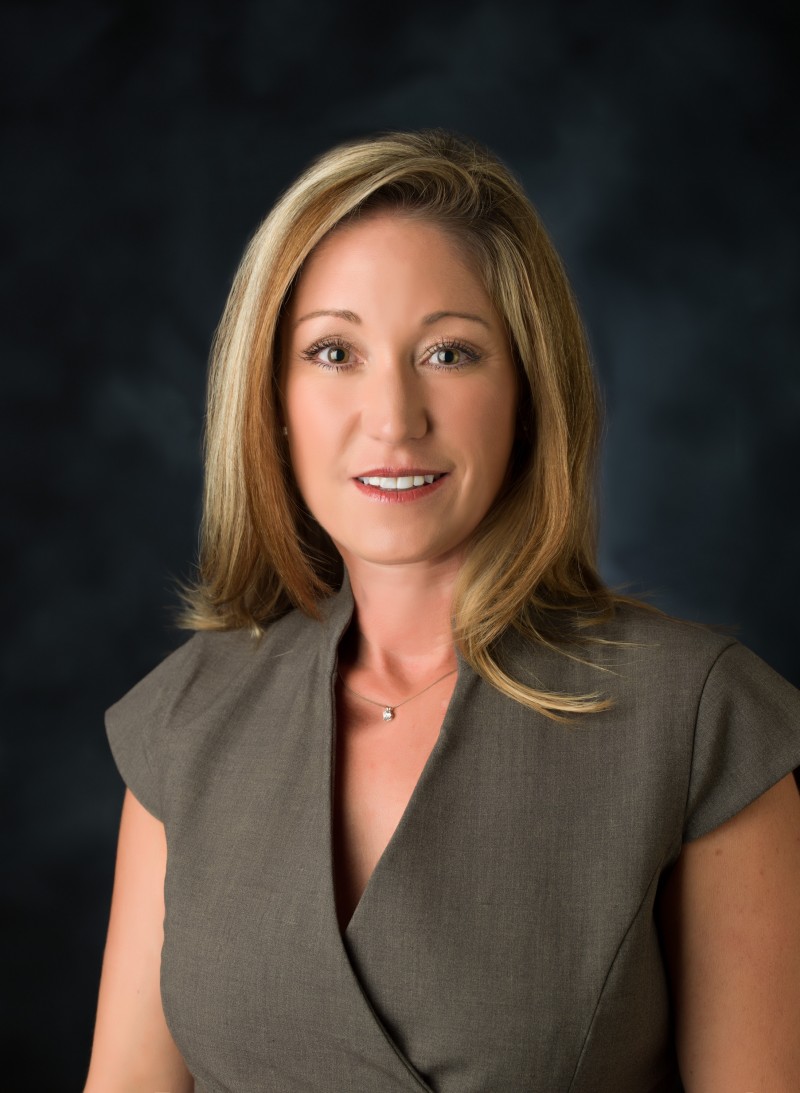
 Lezli Engelking founded the Foundation of Cannabis Unified Standards (FOCUS) in 2014 to protect public health, consumer safety, and safeguard the environment by promoting integrity in the cannabis industry through the use of standards. Standards are an agreed upon way of doing things and specify guidelines or requirements for producing goods or providing services, according to FOCUS.
Lezli Engelking founded the Foundation of Cannabis Unified Standards (FOCUS) in 2014 to protect public health, consumer safety, and safeguard the environment by promoting integrity in the cannabis industry through the use of standards. Standards are an agreed upon way of doing things and specify guidelines or requirements for producing goods or providing services, according to FOCUS.

Standards can take the form of a “reference document, which may include specifications, guidelines, conditions or requirements for products, operations, services, methods, personnel and systems on how to design, operate, manufacture or manage something.” Peter Maguire, VP of System Applications for Lighthouse Worldwide Solutions and committee chair of the FOCUS Cultivation standard, joined the organization wanting to make a positive impact on the industry that is in line with protecting people and medical patients. He sees so much variability in the industry and the need to homogenize standard operating procedures (SOPs). “I have worked with multiple cultivation facilities and a few of them have operating procedures in place but having them in place is only half the solution- it’s critical to have the right ones in place,” says Maguire. He has twenty years of experience in contamination control in manufacturing, before entering the cannabis industry.
The FOCUS cultivation standard was created by experts who have years of experience in both cannabis cultivation, good agricultural practices and in the tightly regulated pharmaceutical industry. “FOCUS created these guidelines as a sort of roadmap for success in business; You need to keep your employees healthy and your products safe to survive in the long term,” says Maguire. We sit down with Lezli Engelking to find out how the standards are created, what makes them significant and what businesses can gain by working with them.
CannabisIndustryJournal: Why are standards important?
Lezli: Standards are the international language for trade – they exist in every industry. “The U.S. Department of Commerce estimates that standards and conformity assessment impact more than 80% of global commodity trade.” FOCUS is not reinventing the wheel with what we are doing. We are simply adapting a business model the federal government already uses. In the 80s, when the heroin epidemic swept across the US, methadone clinics popped up in every state in the country within two years. The clinics were all operating under different state, city and county regulations – much like the cannabis industry is today. The federal government took a look at the situation and decided they needed a way to regulate these clinics in order to protect public health and safety. They released a Request For Proposal (RFP) looking for an organization to create voluntary-consensus standards and a third-party certification system for the methadone clinics. Commission on Accreditation of Rehabilitation Facilities (CARF) is the organization that answered and won that RFP. CARF continues to work with Health and Human Services to maintain the standards and provide third-party certification to the clinics today. FOCUS develops international, voluntary consensus standards and a third party certification program for the global cannabis industry based on the CARF model. This is extremely important, because of the National Technology Transfer and Advancement Act, (Public Law 104-115), signed into law March 7, 1996 by President Clinton. The act requires that all federal agencies use standards developed by voluntary-consensus standards bodies, instead of government-unique standards wherever possible. Perhaps even more importantly, the Act includes provisions that encourage federal agencies to partner with the private sector in the development of standards that not only help improve the efficiency and effectiveness of government, but also strengthen the U.S. position in the global marketplace.
CIJ: What exactly goes into developing a voluntary-consensus standard?
Lezli: Voluntary-Consensus refers to the type of standard and how it is developed. Everyone who participates in the development of voluntary-consensus standards does so on a voluntary basis. Committee members must come to a consensus on every point within the standard- down to every comma or semicolon. Once the development process is complete, the standards must undergo a 30-day public review period. The process for developing voluntary-consensus standards is designated by International Organization for Standardization (ISO). ISO has member agencies in 163 countries that participate in the development of standards. The American National Standards Institute (ANSI) is the American body for ISO. FOCUS follows all ISO/ANSI guidelines in the standards development process. This is extremely important because it means FOCUS standards are suitable for accreditation and adoption into regulations according to the National Technology Transfer and Advancement Act. All voluntary-consensus standards are developed under the principles of:
- Openness| Participation in the standard development process is open to individuals with a stake in the standard who bring useful expertise along with the spirit and willingness to participate.
- Balance| Focus stakeholder groups involve all stakeholder groups: industry, regulatory, quality assurance, medical, law enforcement, business, research, consumers, patients and the general public.
- Voluntary-Consensus| Individual subcommittees of volunteers develop each area of the standard, offering their unique expertise to form a consensus. They are not paid for their participation.
- Lack of Dominance| No party has dominant representation, or influence to the exclusion of fair and equitable consideration of other viewpoints.
CIJ: More specifically, how are the FOCUS standards developed?
Lezli: To create a baseline standard, FOCUS utilized World Health Organization (WHO) guidelines for Good Manufacturing Practices (GMP), Good Agricultural Practices (GAP), Good Laboratory Practices (GLP), Code of Federal Regulations (CFR) for pharmaceutical GMPs, nutraceutical GMPs, food safety standards, OSHA and HACCP. From there, applicable cannabis regulations from around the world were added. All of this information was compiled into auditor-style checklists. Each committee member was provided time to go edit, remove or add to items in the checklist on their own. Over the next two years, each of the eight committees had monthly meetings, going through and coming to a consensus on each line item of the standard. Once the committees completed development, the standards were open for a 30-day Public Review to collect comments and feedback. The first eight FOCUS standards, completed and ready for use, cover Cultivation, Retail, Extraction, Infused Products, Laboratory, Security, Sustainability and Packaging & Labeling.
FOCUS is currently recruiting committee members to begin development of five new cannabis standards later this year: Advertising/Marketing, Insurance, Banking/Finance, Patient Care and Research. Committees will receive a list of proposed suggestions for what should be considered in developing the standards. Each committee member will develop a list to select criteria they think should be included into the standard. FOCUS will compile the lists, then committees will go through the monthly standards development/vetting process for each line item in the standard.
CIJ: So what does a business have to gain by adopting a FOCUS standard?
Lezli: Compliance becomes easily manageable with the FOCUS software platform, integrating standards, training and SOPs into the everyday operations of the business. FOCUS certified clients could expect to reduce costs, reduce risk and reduce liability by assuring they are producing safe, quality and consistent products. FOCUS certification allows a business to differentiate themselves from their competitors, and prove to their patients and customers they can trust their products. Certification also allows businesses to access reasonable insurance rates and drives interest from investors.
FOCUS is here to partner with cannabis businesses. We are there to hold their hand, by providing guidance and assistance along every step of the way. Unlike state mandated audits that delineate what a business is doing right or wrong, FOCUS is an on-going compliance management system. We are here to make sure a business runs as efficiently as possible and take the guesswork out of compliance. Under FOCUS certification, a business receives ongoing consulting, customized SOPs, employee training and a documentation management software system to track and prove compliance.
CIJ: Can you give us an update on FOCUS’ progress in 2016?
Lezli: A large milestone for FOCUS this year, aside from completing version one of the standards, is choosing an appropriate software platform, (Power DMS) to house the standards and provide an ongoing compliance management system for our clients. Power DMS also houses regulatory standards for law enforcement; health care, federal aviation and fire departments, so most agencies in public health are already familiar with it. The familiarity and access to this platform is a huge benefit on the regulatory side. It allows first responders to access the schematics of a FOCUS certified client in the event of an emergency. This is crucial in the event of an explosion from extraction equipment, or a fire in a cultivation facility, as without first identifying where the hazards are, they will not access the facility. The FOCUS software platform allows first responders access to all pertinent information through computers in police cars, ambulances, or fire trucks.
For the industry, the FOCUS software platform is equally as impressive. Not only does the platform house the standards and all SOPs, it is also complete compliance management system. FOCUS certified clients have a simple management tool that houses all training and documentation, assuring all required compliance documentation can be easily accessed at any time. The platform also allows FOCUS certified clients to provide access to governing bodies in advance of state audits –streamlining the process and minimizing time and interruption caused by state audits. The FOCUS platform tracks all changes to required documents, provides real time updates on employee training, creates appropriate traceability logs, and provides updates on regulatory changes, including which SOPs need to be changed to maintain compliance. The platform allows FOCUS to be way more than an auditing company. FOCUS is a partnership in compliance for cannabis companies wanting to maintain good business practices and stay compliant with regulations.
We have about 140 new committee members that will assist existing committees with standards updates and participate in the development of the next set of FOCUS standards for advertising/marketing, banking/finance, research, patient care and insurance. All committees will convene before 2017.



